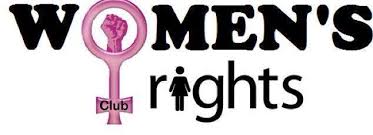US & CANADA: HUMAN RIGHTS – Women’s rights, harassment and pay inequality

IT is a global phenomenon and no country is spared the scrutiny — that is the issue of women’s role in society and the workplace. Canadian Prime Minister Justin Trudeau and his Norwegian counterpart, Erna Solberg, for instance, passionately championed women’s rights and pay equality at the annual state of the world jamboree, the World Economic Forum in Davos last week.
In London and in other cities, thousands of women last week marched to mark the first anniversary of the Women’s March London to renew the fight for gender equality and justice, and against sexual harassment in the workplace. Their clarion call is “Time’s Up”— a legal defence fund set up to financially support women who have experienced sexual harassment, assault or abuse in the workplace. Such campaigns the world over, including in Malaysia, are capitalising on the activism precipitated by the #MeToo hashtag on social media in the wake of sexual abuse allegations against Hollywood mogul Harvey Weinstein and stars Kevin Spacey and Matt Lauer.
True to form, United States President Donald Trump, celebrating the first anniversary of his presidency, could not desist from tweeting against the marches, including one in Washington D.C. led by Senator Kirsten Gillibrand and Congresswoman Nancy Pelosi, urging them “to celebrate the historic milestones and unprecedented economic success and wealth creation that has taken place over the last 12 months. Lowest female unemployment in 18 years!”
In Malaysia, the Association of Women Lawyers, among others, urged Putrajaya to introduce a Sexual Harassment Act, stressing that the Code of Practice for the Prevention and Eradication of Sexual Harassment at the Workplace, introduced two decades ago, has made “little impact”. Whether it is sexual harassment, rape as a weapon of war and patriarchy, deprivation of education, domestic violence, pay inequality and the ever-widening gender gap, our newspapers, televisions and social media, have, in the last two years, highlighted a litany of such incidents and reports the world over. They have become so routine, as if society is incapable or unwilling to confront or deal with these issues.
Irrespective of ethnicity, creed, level of development and type of political system, patriarchy and misogyny is as entrenched as ever. Male dominance of society and over women is rooted in the misconception that women need looking after like children because they are weaker and intellectually inferior, which in turn has fuelled an atavistic need to exercise power over women.
Women’s rights and the abuse of women are as old as the
antics of the Abrahamic Adam and Eve (Hawa). But, two millennia later, is society slowly starting to see the beginning of the end to patriarchy? Has the exposure of sexual harassment in Hollywood sparked a global workplace revolution? It would
be naive to think that the status quo will change overnight. It
took British political activist
Emmeline Pankhurst, leader of the Suffragette Movement, a lifetime to help women win the vote in the Mother of Parliaments in Britain in 1918, a decade before her death in 1928 at the age of 70.
It is encouraging to see a few governments and companies starting to take the issue of workplace equality and harassment seriously. Any attempt to create a “shared future” for men and women would be a generational task, perhaps up to three generations. This is because changing mindset is as much an inter-generational phenomenon as it is a function of the government, law, education, religious establishment, media and society per se.
While 2017 was a year of revelation in terms of workplace abuse and harassment of women, 2018 is set to be a year of promise. But, as Canada’s Trudeau stressed in Davos: “Progress of any kind takes hard work.”
Jacinda Ardern, the premier of New Zealand, is set to become only the second prime minister to have a baby while in office, after Pakistan’s Benazir Bhutto in 1991. It shows young women that holding leadership positions shouldn’t be a barrier to having children. In January, Iceland passed a new law making it illegal for companies to pay native men more than women, and, other ethnic groups for the same job. Canada is following suit later this year, having pioneered the first gender-balance cabinet in 2015.
The US and the United Kingdom lag in this respect, citing the enormous cost it would take in pushing immediate gender equality. BBC’s Carrie Gracie resigned as Editor of the China Department in protest against the pay gap between her and her male colleagues in a similar job. A few days ago, high-earning male BBC broadcasters decided to take a voluntary pay cut, but, the gesture betrays the lack of urgency by the BBC trustees and management in pushing through immediate pay parity. FTSE 100 companies have only six women chief executive officers, albeit, female board members now count for 28 per cent take up.
The cost argument does not hold water. Global advisory firm McKinsey estimates that economic gender parity could add US$150 billion (RM580.7 billion) to the Canadian economy by 2026 and US$1.75 trillion to the US’ gross domestic product. Other research shows that a 30 per cent corporate leadership of women translates into a 15 per cent hike in profitability. The tragedy is that gender equality and equal pay are still measured in terms of cost and not in terms of a fundamental human right.
The theme in Davos bravely espoused “Creating a Shared Future in a Fractured World”. The G7 has also established a Gender Equality Advisory Council to be co-chaired by Melinda Gates and Isabelle Hudon.
It depends on what priority women’s issues are at these top tables of global discourse or whether they would be engulfed by other issues such as migration, international trade, investment, security or making this or that country “great again”.
Mushtak Parker is an independent London-based economist and writer
RELATED ARTICLES
NOTE : All photographs, news, editorials, opinions, information, data, others have been taken from the Internet .. aseanews.net | [email protected] |
For comments, Email to :
JARED PITT | [email protected] | Contributor













